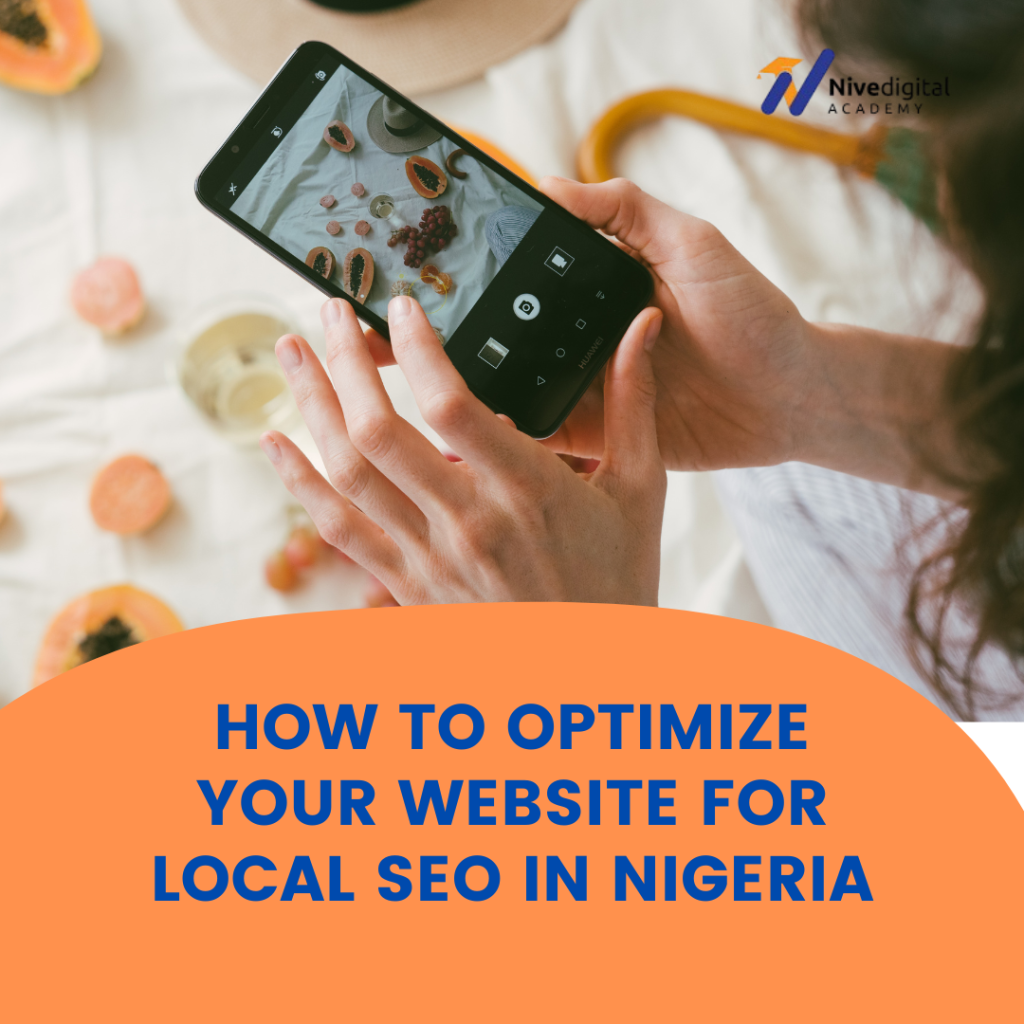
If you run a business in Nigeria, you want customers in your area to find you easily when they search online. That’s where local SEO (Search Engine Optimization) comes in. Local SEO helps businesses appear in search results for users nearby, making it easier for potential customers to discover and connect with you. Whether you own a restaurant in Lagos, a boutique in Abuja, or a tech company in Port Harcourt, optimizing for local search will give your business a competitive edge.
This guide will walk you through everything you need to know about optimizing your website for local SEO in Nigeria, ensuring that customers can find your business quickly and easily.
1. Claim and Optimize Your Google My Business (GMB) Listing
Google My Business (GMB) is a free tool that helps businesses manage their online presence on Google Search and Maps. If you want your business to show up when people search for related services in your area, this is the first step you should take.
How to Set Up and Optimize Your GMB Listing:
- Claim Your Business – Go to Google My Business and create an account if you haven’t already.
- Provide Accurate Information – Fill out your business name, address, phone number, website, and operating hours.
- Select the Right Business Category – Choose a category that best represents what your business does.
- Add High-Quality Photos and Videos – Images of your store, products, or services make your listing more appealing.
- Encourage Customer Reviews – Reviews increase credibility and improve rankings. Ask satisfied customers to leave feedback.
- Respond to Reviews – Engage with customers by responding to their reviews—thank them for positive ones and address concerns in negative ones.
A well-optimized GMB listing can increase visibility and bring more local customers to your business.
2. Optimize Your Website with Local Keywords
If you want your website to rank for searches related to your business, you need to use location-based keywords that people actually search for.
How to Use Local Keywords Effectively:
- Include Location in Your Keywords – Instead of just targeting “best salons,” optimize for “best salons in Lagos” or “affordable car repair in Abuja.”
- Use Keywords in Important Places – Add them to your page titles, meta descriptions, headings, and content.
- Create Location-Specific Pages – If your business has multiple locations, create separate landing pages for each one.
- Use Natural Language – Avoid stuffing keywords unnaturally; make sure they fit smoothly within your content.
By using relevant keywords, search engines can better understand your website and show it to people searching for businesses like yours.
3. Ensure NAP Consistency (Name, Address, Phone Number)
Your business details should be consistent across all platforms, including your website, social media, and business directories.
How to Maintain NAP Consistency:
- Use the exact same spelling, format, and details everywhere.
- Update your business name, address, and phone number on Facebook, Instagram, Twitter, and LinkedIn.
- Ensure your Google My Business listing matches your website information.
- Check your details on online directories like VConnect, Finelib, and BusinessList Nigeria.
This consistency helps search engines trust your business information and rank your website higher in local search results.
4. Build Local Citations and Business Listings
A citation is simply a mention of your business on other websites, like business directories and social media platforms. Having multiple citations improves your credibility and search engine ranking.
Where to List Your Business:
- Google My Business
- Business directories like VConnect, Finelib, BusinessList Nigeria, and HotFrog.
- Local blogs and newspapers that cover businesses in Nigeria.
- Industry-specific directories related to your niche.
The more reputable websites that mention your business, the more search engines recognize it as a trusted local business.
5. Get More Local Customer Reviews
Reviews build trust and credibility, influencing both potential customers and search rankings.
How to Get More Reviews:
- Ask Happy Customers for Reviews – After a successful sale or service, encourage customers to leave a review on Google, Facebook, or other platforms.
- Make It Easy – Provide direct links to your review pages.
- Respond to All Reviews – Thank customers for positive reviews and address concerns in negative ones professionally.
- Offer Incentives – While you shouldn’t buy reviews, you can encourage feedback by offering small discounts or loyalty points.
A steady flow of positive reviews boosts your online reputation and increases local visibility.
6. Optimize for Mobile Users
Most internet users in Nigeria access the web through their mobile phones. If your website isn’t mobile-friendly, you’ll lose potential customers.
How to Optimize for Mobile:
- Use a responsive website design that adjusts to all screen sizes.
- Improve loading speed by compressing images and using a fast hosting service.
- Enable Accelerated Mobile Pages (AMP) to make your site load faster on mobile devices.
- Use large fonts and clear buttons for easier navigation.
A mobile-friendly website improves user experience and increases your chances of ranking higher in search results.
7. Create Location-Specific Content
Writing about local topics and trends helps your website attract more visitors from your area.
Ideas for Local Content:
- City Guides – Example: “Best Restaurants in Abuja” or “Top 5 Tech Startups in Lagos”.
- Customer Stories – Share testimonials and success stories from Nigerian customers.
- Local Events and News – Write about relevant industry events happening in Nigeria.
- How-to Guides for Local Customers – Example: “How to Register a Business in Nigeria”.
Creating locally relevant content helps establish your business as an authority in your industry.
8. Leverage Social Media for Local Engagement
Social media plays a huge role in local business visibility in Nigeria.
How to Use Social Media for Local SEO:
- Post Regularly – Share updates about promotions, events, and new products.
- Use Local Hashtags – Example: #LagosBusiness, #AbujaRestaurants.
- Engage with Followers – Reply to comments, messages, and reviews.
- Join Local Groups and Forums – Participate in Facebook groups related to your industry.
Active social media engagement helps build a strong local brand presence.
9. Use Structured Data Markup
Structured data (schema markup) helps search engines understand your business information better.
How to Implement Structured Data:
- Use Local Business Schema to mark up your name, address, phone number, and operating hours.
- Add review markup to display star ratings in search results.
- Use Google’s Rich Results Test to check your structured data.
This improves search engine visibility and increases click-through rates.
Conclusion
Local SEO is essential for attracting customers in Nigeria. By optimizing your Google My Business listing, using local keywords, getting customer reviews, and improving mobile-friendliness, your business will stand out in search results.
Frequently Asked Questions
1. How long does it take to see results from local SEO?
Local SEO results vary, but businesses typically see improvements within 3 to 6 months with consistent efforts.
2. Can I do local SEO myself, or do I need an expert?
You can handle basic local SEO yourself, but hiring an expert can help you achieve better and faster results.
3. Why are customer reviews important for local SEO?
Customer reviews increase trust, improve rankings, and encourage more people to choose your business over competitors.
4. How often should I update my business information online?
Update your business details whenever changes occur to ensure customers and search engines always have accurate information.

Article by:
Oyejobi Adeola, founder of NiveDigital & NiveDigital Academy, is a top expert in SEO and digital marketing.
With over a decade of experience, he has helped businesses grow through advanced SEO strategies and trained hundreds of students to succeed online.
His insights have been featured in top industry publications.

